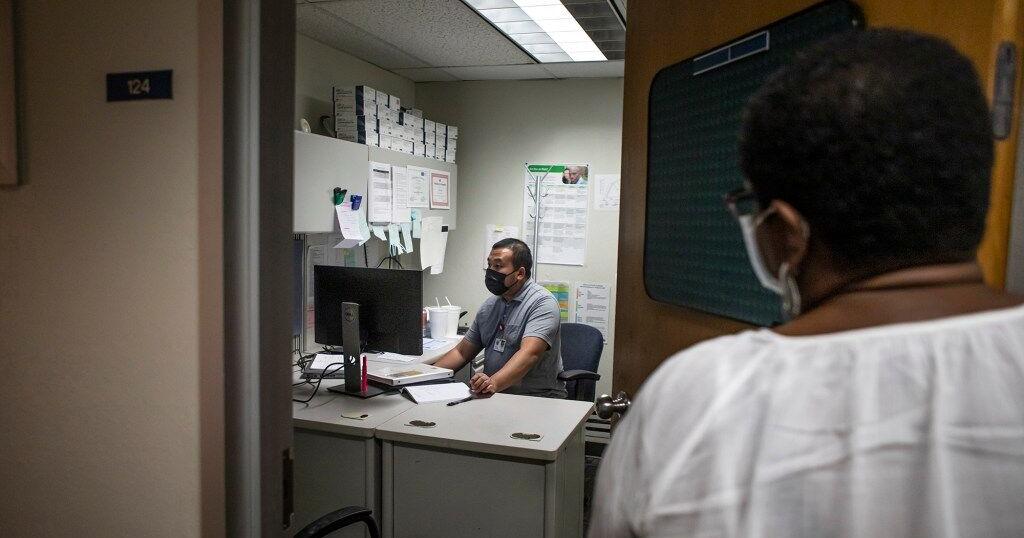By Myki Jones and Jeanne Souldern
Sopris Sun Correspondents
The Supreme Court’s June 2022 Dobbs v. Jackson decision gave states the power to regulate abortion, effectively overturning Roe v. Wade and leaving many seeking access to safe abortion services traveling across state lines to access this healthcare.
Colorado is one of 20 states to keep abortion legal, according to a Feb. 10 New York Times article. That update declared that 13 states have fully banned the procedure. On July 6, Governor Jared Polis signed an executive order directing state agencies to protect access to reproductive healthcare.
What does this mean for reproductive healthcare access in the Roaring Fork Valley?
The Sopris Sun contacted a number of sources, including representatives from Planned Parenthood, the Colorado Organization for Latina Opportunity and Reproductive Rights (COLOR), New Era Colorado and the Pregnancy Resource Center of Glenwood Springs, to discuss the state of reproductive healthcare in Colorado.
According to Jack Teter, policy director of Planned Parenthood of the Rocky Mountains, even before the overturn, their clinics were seeing an increased number of cases where patients traveled long distances from all over the U.S. to access healthcare unavailable in their home states due to restrictive laws that had been implemented. In Texas and Alabama abortion care has since been criminalized.
Some patients, Teter said, have driven thousands of miles to receive reproductive care. “We’ve seen people [who] have driven with their sleepy kids in the backseat, having to find lodging and transportation, leaving their support system behind. They come from other states because those states have made abortion a crime,” Teter stated.
Planned Parenthood, the largest national provider of family planning services, offers primary care, annual exams, contraceptive access, STI/STD (sexually transmitted infection/disease) testing and cancer screenings.
Thousands of those patients live within Colorado District 3.
Representative Lauren Boebert (CO-03) introduced the Defund Planned Parenthood Act (H.R. 128) to Congress on Jan. 9. According to a Jan. 20 press release from Boebert’s media office, this legislation would prohibit federal tax dollars from going to Planned Parenthood and have them redirected to “community health centers.”
These community health centers, “crisis pregnancy clinics,” according to the press release, would instead receive the federal funding that goes to Planned Parenthood.
The Sopris Sun reached out to Boebert’s office multiple times for an interview and was denied. Her press secretary, Jake Settle, emailed a response containing language from the original press release.
The press release from Boebert stated, “The nation’s largest abortion provider has no business receiving taxpayer dollars.”
Boebert claimed that Planned Parenthood performed a record number of abortions last year while reducing the number of well-woman exams and breast cancer screenings. She asserted, “instead of funding Planned Parenthood, my bill will redirect this funding to community health centers that meet the health needs of women across the country.”
Other sources told The Sun that, should H.R. 128 pass, this would leave many people in Colorado, and especially in the Roaring Fork Valley, with limited reproductive healthcare options.
COLOR, a Denver-based nonprofit, is the only Latina-led reproductive justice organization in Colorado. Aurea Bolaños Perea, strategic communications director, said COLOR “takes multiple approaches, but all through a framework that’s rooted in reproductive justice.” They also educate on access to abortion, birth control, sex education, immigrant and LGBTQ+ rights.
“We know that people of color, specifically the Latina community, are disproportionately impacted by any form of restrictions or bans to care, which is why this topic itself about defunding any form of health care clinic would have a disastrous public health effect on communities of color,” Bolaños Perea said.
COLOR is not an abortion fund or clinic but an educational/advocacy organization recommending policies that reflect the needs of Colorado’s Latina community. COLOR also has a youth-to-leadership pipeline, allowing volunteers to partner with other organizations within the reproductive justice coalition, “or they end up working under the dome [in the Colorado Assembly],” Bolaños Perea said.
Arianna Morales has led New Era Colorado’s initiative, The Brazen Project; an abortion advocacy campaign organized on Colorado college campuses, primarily in Denver, Boulder, Fort Collin and Greeley.
New Era historically “focused on civic engagement and empowering young people but has moved more into the issue advocacy space,” Morales said.
Pregnancy resource centers, which she called “anti-abortion centers,” are not viable alternatives to reproductive healthcare providers, she said. “They don’t provide comprehensive care services and actually push shameful misinformation and dangerous practices,” including the controversial abortion pill “reversal” procedure.
Morales claimed that the clinics are often limited in services, such as ultrasounds and STI/STD testing, due to a lack of medical providers on staff. She explained, “For the people we serve, this bill is not aligned with their values, and it can be dangerous to the safe haven identity of our state.”
The Pregnancy Resource Center (PRC) of Glenwood Springs, a nonprofit founded in 1985, offers free pregnancy and limited ultrasound testing, counseling support services and STI/STD testing.
Executive Director Marylu Sims shared, “We do not make referrals for abortion,” which is also stated on PRC’s website homepage.
PRC provides private consultations with a nurse for those who wish to learn more about or who are considering using the abortion pill, Mifepristone, which is used to terminate a pregnancy of 10 weeks or fewer.
Sims explained, “because Mifepristone has many risks,” they offer an ultrasound to check for a viable intrauterine pregnancy with no abnormalities. If signs of an IC [interstitial cystitis] pregnancy are found, “our client is strongly advised to go to an emergency room immediately, and if signs of a miscarriage are found, our client is urgently referred to an OB [obstetrician] or emergency room,” she said.
PRC staff includes an overseeing doctor, overseeing nurse practitioner, three registered nurses trained as sonographers and a clinical director performing administrative and clinical duties.
While the reproductive healthcare landscape in Colorado remains untouched by federal legislation, political wills could quickly change that reality.
Discovered on: 2023-03-08 20:44:11
Source: Reproductive healthcare services walk a tenuous tightrope – The Sopris Sun



